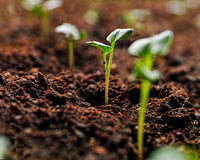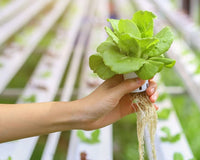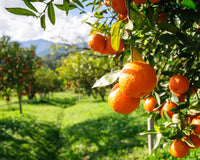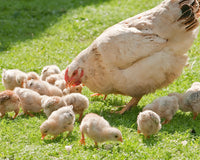Para que un jardín se considere sostenible, los jardineros deben utilizar prácticas de jardinería que no dañen el medio ambiente ni a sus habitantes. Entonces, ¿qué pasa con el control de plagas y enfermedades? ¿Cómo podemos no dañar el medio ambiente y al mismo tiempo proteger nuestros jardines? La respuesta es bastante simple: controlando y utilizando productos y prácticas conscientes. Hoy vamos a analizar superficialmente algunas de estas prácticas.
Manejo Integrado de Plagas (MIP)
El Manejo Integrado de Plagas (MIP) es un método eficaz y respetuoso con el medio ambiente para el control de plagas que se basa en una combinación de prácticas de sentido común. Los programas de MIP utilizan información sobre los ciclos de vida de las plagas y su interacción con el medio ambiente para controlarlas con el menor riesgo posible para las personas, la propiedad y el medio ambiente. Las acciones de los programas de MIP pueden variar desde el cultivo de un cultivo que pueda resistir los ataques de plagas, como el cultivo de maíz alto en los bordes de los jardines y las granjas, hasta el cultivo de cultivos resistentes a las enfermedades.

Escucha
El monitoreo es un componente esencial en los programas de MIP. Mediante un monitoreo profundo, puede detectar plagas en etapas tempranas antes de que se conviertan en infestaciones problemáticas y encontrar la mejor estrategia de manejo para el futuro. Esto elimina la necesidad de usar pesticidas cuando no son necesarios o cuando se agrega uno demasiado fuerte para la situación al jardín. En cambio, agrega el tiempo necesario para usar controles de plagas alternativos y naturales que no agregarán químicos dañinos al entorno de su hogar.
Controles
La forma más eficaz y duradera de controlar las plagas es utilizar una combinación de métodos de control junto con un método de control. Existen varios tipos de control no químico que se pueden utilizar en el hogar.

Controles biológicos
Los controles biológicos utilizan enemigos naturales para controlar las plagas y sus daños. Esto significa que las plagas y enfermedades se eliminan utilizando controles que se producen de forma natural. Los productos contienen elementos como microbios naturales especialmente seleccionados que compiten y desplazan las enfermedades que dañarían la planta. Esto también significa productos que repelen plagas dañinas como pulgones y trips, pero apoyan a los depredadores naturales e insectos beneficiosos como abejorros y mariquitas. Al utilizar depredadores, parásitos, patógenos y competidores, los controles biológicos apoyan la salud de las plantas de una manera que no contiene sustancias químicas y no daña el medio ambiente, exactamente lo que significa la sostenibilidad.
Controles químicos
Cuando se necesita un pesticida en un programa de MIP, es importante utilizar los pesticidas más selectos que harán el trabajo y serán los más seguros para otros organismos y el medio ambiente. Esto se puede hacer a través de estaciones de cebo o pulverizaciones localizadas como Weed Zap en algunas malezas en lugar de en un área entera. O el uso de pesticidas con ingredientes naturales para combatir insectos molestos como moscas blancas, trips, pulgones y ácaros en lugar de productos químicos más tóxicos. Los ingredientes naturales pueden incluir cosas como aceites esenciales como los que se encuentran en Pest Out .

Conclusión
Estamos muy emocionados de comenzar el nuevo año con consejos sobre cómo hacer que la jardinería de 2022 sea más sostenible y consciente del medio ambiente. La sostenibilidad y la conciencia ambiental son muy importantes para nosotros en el futuro y nos apasiona brindar información sobre cómo todos podemos hacer nuestra parte para ayudar. Manténgase conectado con nosotros a través de Instagram y Facebook para conocer los próximos blogs y recomendaciones de productos.






